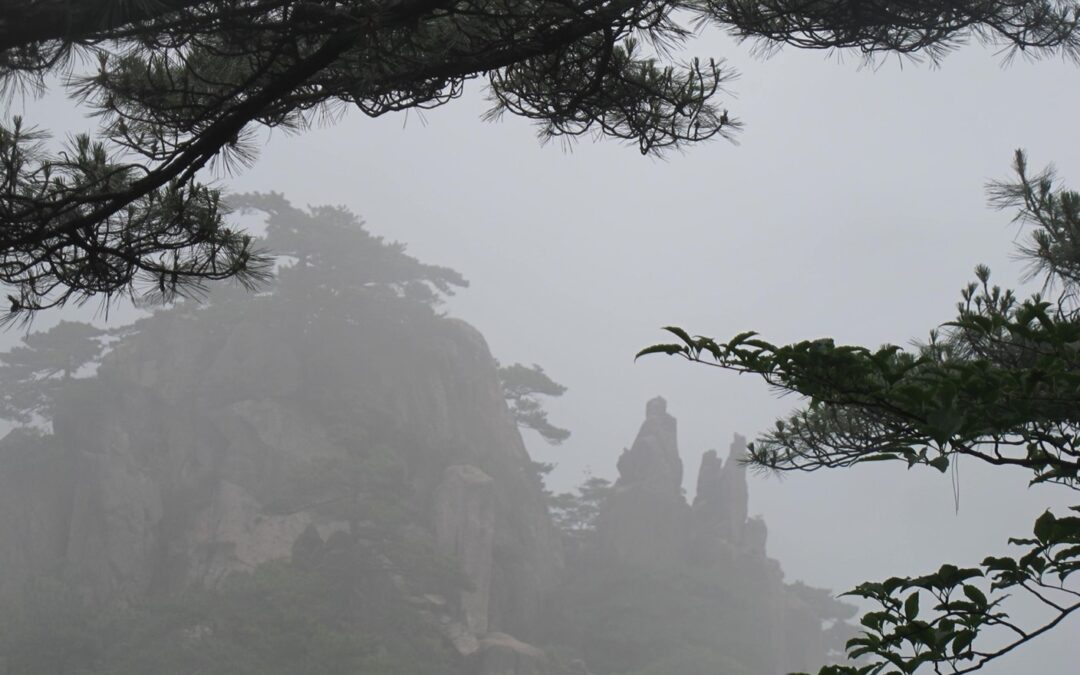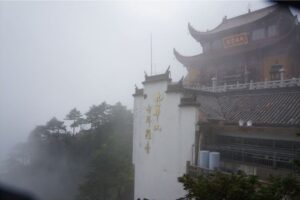Hear the author read this article (3:59)
I was teaching operations management at a business school in Shanghai in the early summer of 2012. On the weekend of Duan Wu Jie (Dragon Boat Festival) I stayed over night in a Buddhist monastery on Jiu Hua Shan, (Nine 九 Flower 華 Mountain 山) in Anhui province about a six-hour drive from Shanghai. I travelled with Chinese friends who visited with four monks and translated our conversations. One of the monks who trained four years in the tea ceremony guided us through the thinking behind it and the experience.

When one drinks the tea a certain attitude of gratitude, attention and intention is required which gives the experience of drinking the tea a particular quality. The monk provided the example of the difference between one’s feelings when your young child brings you a gift of a drink, compared to the feeling one has when you simply consume a drink you have purchased. You will feel that the drink your child has provided tastes much better, and this is because of the attitude you have brought to the experience. So, one begins with gratitude for the life and care of all those who made the tea possible. One drinks the tea with the intention, and attention that it is very special. One grasps the cup in a certain way and then brings the cup to the nose to smell the tea, then one takes a very small sip to taste the tea and then one finishes the tea with a bit of a slurp. One repeats this with each small cup of tea and thus it becomes a meditation that trains the heart in gratitude, attention, and the independent nature of tea and all of life. One can take this attitude to activities in daily life thus creating an appreciative mindset that reduces one‘s suffering.
Looking back at that experience now in the context of climate change and the troubles we are facing in the world today, the lessons from this experience seem to me to be pertinent. One doesn’t have to be religious to recognize the interdependent nature of our existence, nor to shift our attitude to one of gratitude and appreciation for even the simplest things in life. If we were to do this perhaps we wouldn’t be so enamoured with consumption and competition and more concerned about caring for others, our cities and the planet.




